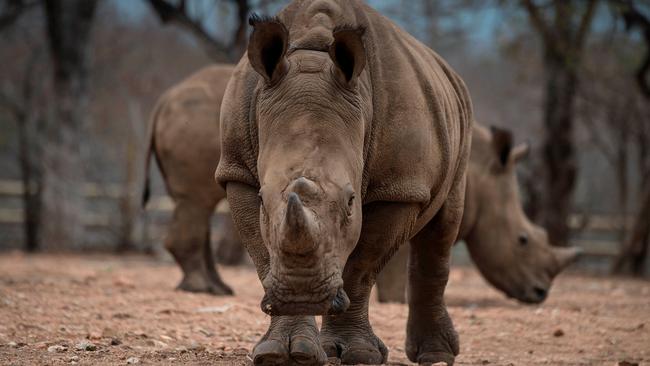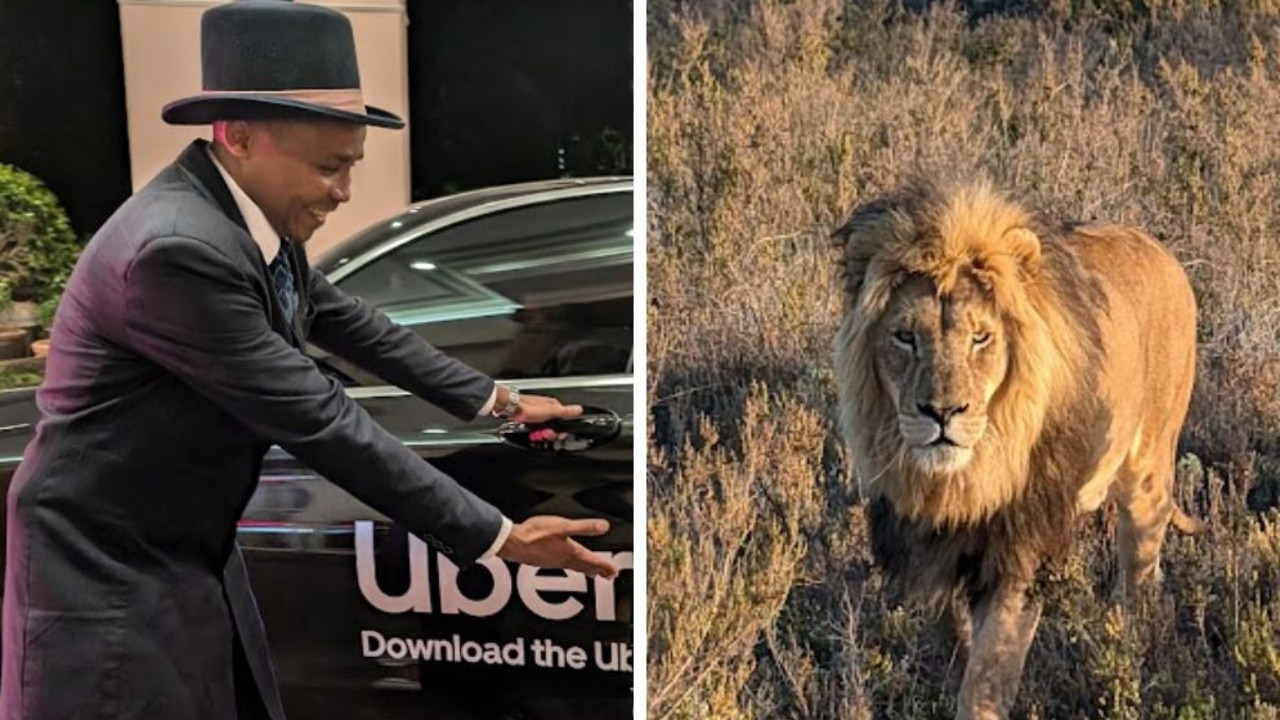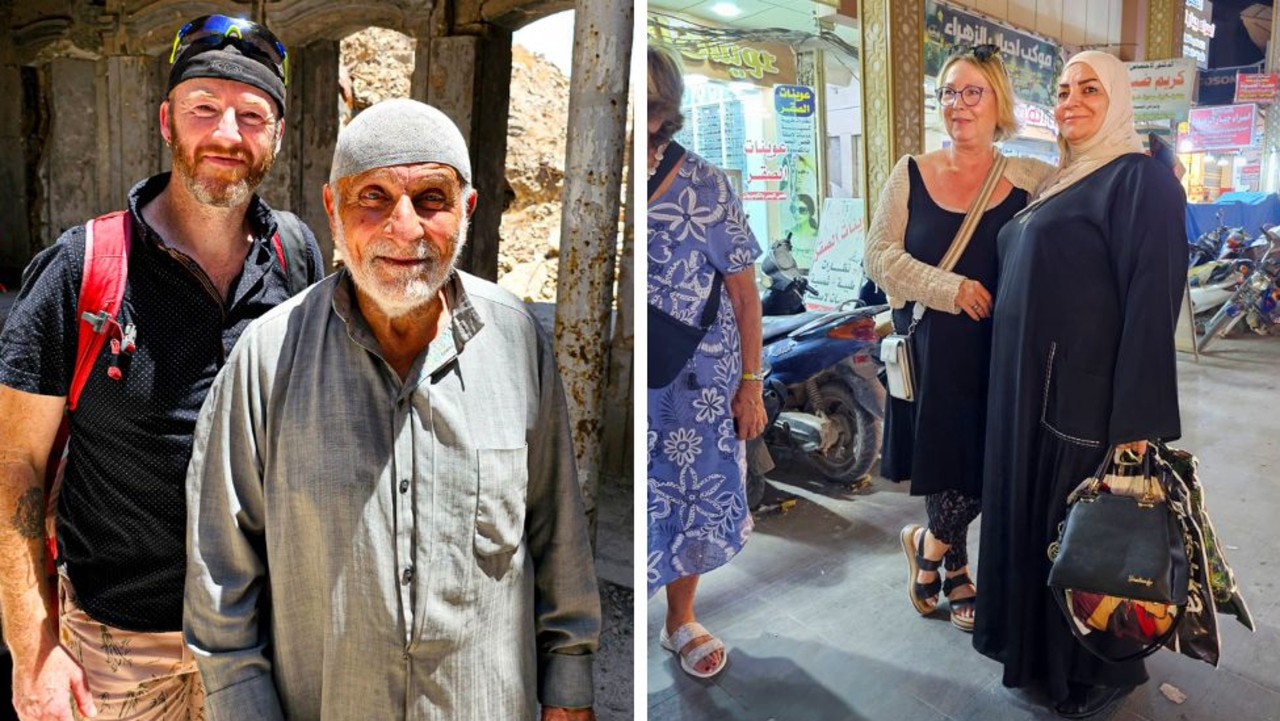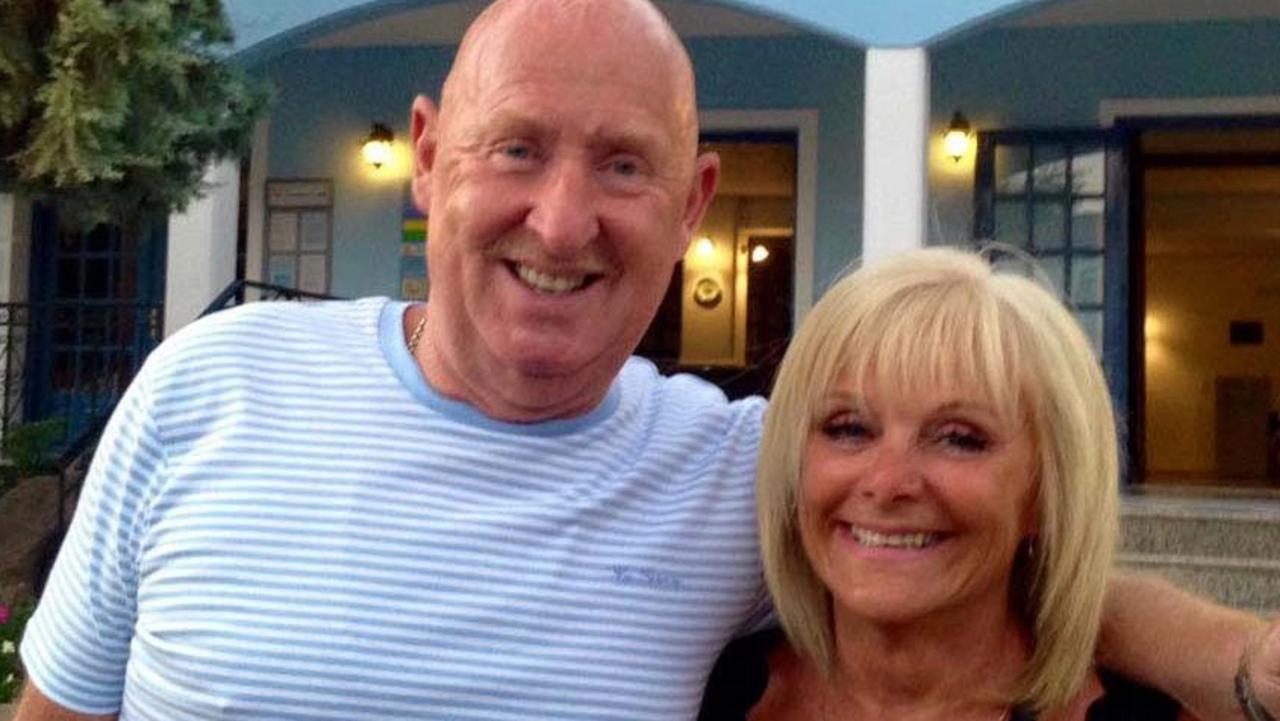What it’s really like for rhino poachers in South Africa
PLENTY of well-known wildlife warriors are speaking out against poaching, including Prince William. This is the other side of the story.

LAST year, 1175 rhinos were killed by poachers in South Africa and unofficial figures for 2016 show the numbers are set to meet or exceed that due to increased demand in Asia for the animal’s horn.
International outcry over poaching is growing as people like Princes William and Harry join the fight to save the species on the brink of extinction, but no one has talked to the poachers themselves to ask why they do it, and whether anything can be done about it … until now. On my latest trip to South Africa, I met people on both sides of the poaching problem — some running an orphanage and some who put the rhino babies in there to begin with. It was fascinating, showing the answers go beyond the simple excuse of human greed and the need to erase the demand coming from Asia. South Africa needs to take a closer look at home and its domestic policies for anything to change. BACKGROUND During Apartheid, local tribes were evicted from the Kruger area so the National Park could be formed. After the park was formed, black people were forbidden from entering the park. While Apartheid has ended, its effects still linger — especially around Kruger. Some two million impoverished people live on the border of the park with severely limited job and economic opportunities. And by limited, let’s be blunt: there is almost no electricity or running water. There are no government programs or social services. And those lucky enough to have a job (unemployment rates in the area are estimated by some to be as high as 75 per cent) often make under $100 a month. While working with anti-poaching units and an orphanage, I caught a glimpse of a paycheck given to a man who was charged with rhino security. It was roughly $20, for three weeks of non-stop work. Juxtapose that with the paycheck a poacher gets — around $1500 per horn — and it’s not hard to figure out why the rhino is in such danger. Oftentimes the private security guards as well as the park rangers inside Kruger are in on the poaching circuits, as well as teachers, policemen, shopkeepers and others in “respectable” trades. Godknows Nare, a Zimbabwean journalist, spent six months with rhino poachers living on the border of Kruger. “At first I thought (poachers) were just cruel criminals,” Nare said. “But then you engage with the people, you live with the people ... There are villages just around the Kruger National Park — they live on social grants because there is no more land to farm … An empty stomach doesn’t say anything, doesn’t think anything about death. You just need to fill up your stomach. Then you can think about other things.” Viktor Barkas, who runs the Rhino Protrack team, which patrols for poachers on privately owned land outside of Kruger, in Hoedspruit, South Africa, told me last year that in the small area he patrols there are 2000 rhinos — 126 of which were slaughtered in the first half of last year, leaving many rhino offspring orphaned. “It is not a war on rhino,” Barkas said. “It is a genocide.” But even those in the area who aren’t involved (or claim they aren’t) are subject to harsh treatment. Sboniso Mhlongo, 23, a resident of one of the Kruger border towns near Skukuza was suspected of poaching. The result was severe. He was woken up at his home around 1am when “people arrived, banged on the door and broke windows,” he said. “These people walked in with a white man. Then I was shackled and I wasn’t given any answers I was dragged outside into a (truck) … More people were stacked in the combi. And when we asked them who they are, they claimed to be cops.” Mhlongo claims he and the others in the back of the truck were driven around and beaten while the captors demanded a gun used in a poaching incident he claims no one had. “We were beaten until we couldn’t breathe. Beaten to a pulp. One man’s hands were broken, another’s legs broken, others soiled their pants and others peed in their pants. Then we were dropped off at home afterwards. “We were not taken to a police station and I didn’t even see one cop … I know nothing about guns and I have never been arrested.” Mhlongo’s claims the only time he has been to Skukuza is to get water from the dam. “We only get free water from Skukuza — there no other benefits as a community. I know that our ancestors lived on the land. “And then they were kicked out with a promise to pay for the land so I am not aware if they have been paid. I don’t think it’s fair to be assaulted and why didn’t they arrest me and take me to the police station. And why are they searching our homes when they don’t even have warrants. The only licenses they have is for animals.” June Mabuse, who’s brother was shot and killed in Kruger during an alleged poaching incident, echoed this sentiment. “They value the animal’s life more than a human. How can that be? We get nothing from the Kruger — it is killing us.” Only one man Nare filmed admitted to actually poaching — we’ll call him “Z”. In the video above, Z describes why he poaches and how the syndicates are run. “I poach because of circumstances,” Z said. “There is no work, no money and no food so that is why I poach. (I do it for) money so we can open a small business and prosper. Once I make enough cash I will (stop poaching and) start my own business. It’s a risk between life and death so we go there knowing that death is a possibility. We know it’s dangerous but we go anyway.” THE ANSWER In contrast to the crisis around Kruger is the Phinda game reserve run by the luxury company &Beyond, just south of Swaziland. Phinda has seen a limited number of poaching incidents over the past few years, and andBeyond’s successful Rhinos Without Borders breeding initiative has seen many rhinos recently relocated to the relative safety Botswana. Martin Bornman, a director of the African Conservation Experience, explained: “In South Africa, whoever owns the land owns the animals on the land. What happened in Phinda was a group of wealthy individuals bought the land and returned it to the local tribes in exchange for a contract to manage the property. The locals also work for the management company (&Beyond) and everyone makes money off the animals and the rhino. The local tribes now protect and police their land, making it almost impossible for poachers to penetrate.” Paula Froelich is an award-winning journalist who writes the blog A Broad Abroad. RELATED LINKS Inside a South African Rhino Orphanage On the Frontlines of the Rhino Wars — Saving a Species from Extinction



